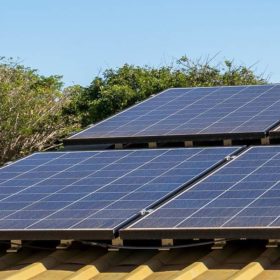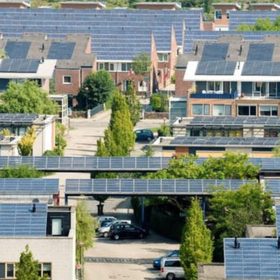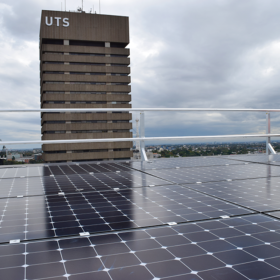Australia’s massive contribution to global PV, battery uptake blemished by grid woes
Last year, Australia shattered all records in terms of investment in renewables and capacity additions, but a range of concerns for solar PV developers, including network constraints, delays and grid connection issues, are looming over the nation’s clean energy sector, according to an annual overview drafted by global policy network REN21.
BHP, Mitsubishi Development pledge to reduce emissions from coal operations
Australian mining giant BHP and its strategic partner Mitsubishi Development, the holding company of Mitsubishi’s coal investments in Australia, have pledged to pursue emissions reductions, including from the life-cycle use of marketed products.
Think-tank eyes up 10 GW sustainable future for Northern Territory
A new report raises awareness of the potential jobs and revenue opportunities for Territorians in a zero-carbon economy. The 10 GW Vision relies largely on solar PV.
Horizon Power beefs up hosting capacity to accommodate more solar
More regional Western Australians will have the opportunity to install rooftop solar panels on their premises with 10 MW of additional renewable energy generation released on Horizon Power microgrids.
Solar, storage and wind can keep us on track as far as 2030
This year’s New Energy Outlook report by Bloomberg New Energy Finance predicts renewables can keep us on track for less than two degrees of global heating for the next decade. But after that, other technologies will have to do their bit.
Victorian councils turn to solar for environmental upgrades, improved bottom lines
Mildura Rural City Council reports a milestone in helping businesses to upgrade their buildings with solar and become more energy efficient and sustainable, while Greater Shepparton sees great results from going solar.
There’s a looming waste crisis from Australia’s solar energy boom
As Australians seek to control rising energy costs and tackle the damaging impacts of climate change, rooftop solar has boomed. To manage the variability of rooftop solar – broadly, the “no power at night” problem – we will also see a rapid increase in battery storage.
Renewables still setting strong pace in South Australia
The April shelving of a major solar thermal plant has done little to slow the pace of renewable energy projects being proposed in South Australia.
Australia could install 179 GW of rooftop solar
With Australia amongst the world leaders in solar uptake, a new study finds the nation is currently using less than 5% of the potential capacity for rooftop solar.
U.K. government announces 2050 carbon neutrality ambition
Leaving with a last hurrah, Brexit casualty prime minister Theresa May has announced a statutory instrument to amend the Climate Change Act of 2008. The law currently prescribes an emissions cut of 80% by 2050, from a 1990 baseline. The new law will aim for net zero emissions by 2050, making the U.K. the first G7 nation to pass such legislation.















